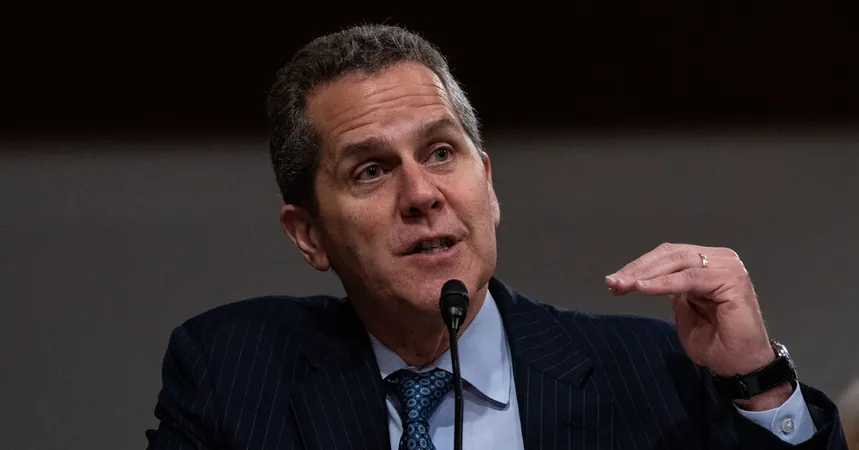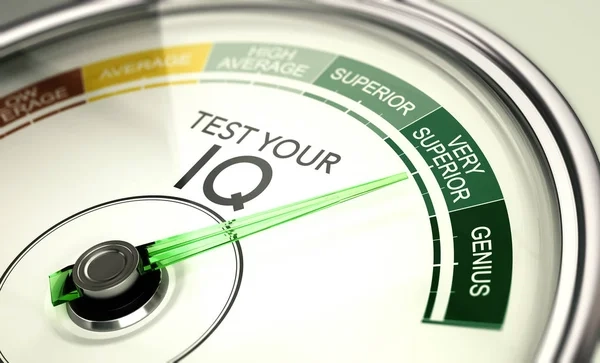
Fed Vice Chair Michael Barr Steps Down Early to Sidestep Potential Conflict With Trump
2025-01-07
Author: Yan
Introduction
In a significant development from the Federal Reserve, Michael Barr has announced his decision to resign from his position as vice chair for supervision by February 28, or sooner if President-elect Donald J. Trump appoints a successor. While he will remain on the Federal Reserve's Board of Governors, Barr's departure is seen as a strategic move aimed at avoiding a protracted legal dispute with the incoming president.
Reasons for Resignation
Sources close to the situation disclosed that members of Trump's administration were considering removing Barr from his role, even before his term officially ended. Such a move could have led to a lengthy, and potentially costly, battle over the legal authority of a president to dismiss an official confirmed by the Senate at an independent agency. This scenario raised concerns about the implications such a legal tussle could have on the Federal Reserve's integrity and operational independence.
Reaction from Experts
Financial regulatory experts have expressed surprise over Barr’s resignation, emphasizing that a powerful regulatory body like the Fed should not be swayed by political changes. Jerome H. Powell, the Fed chair, has been vocal about the institution's commitment to independence and has assured that Trump lacks the legal authority to terminate his position. However, Barr’s preemptive resignation seems to reflect a deeper concern regarding the potential fallout of a confrontation with Trump's administration.
Barr's Perspective
Barr remarked that while he and his legal team felt they could successfully contest any attempt to remove him in court, he deemed the potential fallout from such a legal battle as detrimental to the Fed's mission. "If it came to litigation on the merits, I would win," he stated. "But the real question is whether engaging in that fight is beneficial for the Fed, and I concluded that it would be a serious distraction."
Implications of Resignation
By stepping down voluntarily, Barr avoids the risk of testing the boundaries of presidential authority to fire Senate-confirmed officials, a legal question that has not yet been explored in court. This timely resignation comes in light of a looming regulatory pause. The Federal Reserve has announced that it will not undertake significant regulatory actions until Barr's successor for the vice chair position is confirmed, which raises concerns about potential stagnation in bank regulatory policies during this transition period.
Criticism and Concerns
This situation has drawn criticism from various quarters. Aaron Klein, a senior fellow at the Brookings Institution, commented on the irony of the Fed supporting Barr's decision, calling it "strange" that the institution has not stood firmer against the political pressures. Meanwhile, Dennis Kelleher, president and CEO of Better Markets, labeled Barr’s resignation as "shocking," warning that it jeopardizes the Fed's ability to ensure the stability of the financial system.
Barr's Tenure and Regulatory Challenges
Barr’s tenure has been marked by regulatory challenges, including a controversial proposal to amend financial rules requiring banks to hold more capital reserves. The resistance faced from different stakeholders, including the banking industry and certain Fed governors, forced Barr to scale back these proposals significantly.
Future of Financial Oversight
As Trump prepares to reshape key regulatory positions within his administration, analysts believe that his pro-industry stance will influence financial oversight dramatically, reminiscent of his first term’s approach towards deregulation. Consequently, Barr's exit could lead to the further softening of regulatory measures at the Fed, particularly concerning the Basel III endgame proposal, which is still in the pipeline and requires consensus among multiple financial regulatory bodies.
Political Reactions
Senator Tim Scott, who will lead the Senate Banking Committee, has welcomed Barr's resignation, criticizing his oversight during recent banking failures and the handling of the Basel III rules. The call for a more responsible regulatory framework is echoed among lawmakers who see this reshuffle as an opportunity to realign financial regulation with a more business-friendly approach, potentially reshaping the landscape of American banking supervision.
Conclusion
As the financial community watches closely, the implications of Barr's resignation promise to shape the future landscape of U.S. banking regulation amidst an ongoing dialogue about independence, authority, and the influence of politics in the financial sector. Stay tuned as this critical story unfolds!


 Brasil (PT)
Brasil (PT)
 Canada (EN)
Canada (EN)
 Chile (ES)
Chile (ES)
 Česko (CS)
Česko (CS)
 대한민국 (KO)
대한민국 (KO)
 España (ES)
España (ES)
 France (FR)
France (FR)
 Hong Kong (EN)
Hong Kong (EN)
 Italia (IT)
Italia (IT)
 日本 (JA)
日本 (JA)
 Magyarország (HU)
Magyarország (HU)
 Norge (NO)
Norge (NO)
 Polska (PL)
Polska (PL)
 Schweiz (DE)
Schweiz (DE)
 Singapore (EN)
Singapore (EN)
 Sverige (SV)
Sverige (SV)
 Suomi (FI)
Suomi (FI)
 Türkiye (TR)
Türkiye (TR)
 الإمارات العربية المتحدة (AR)
الإمارات العربية المتحدة (AR)